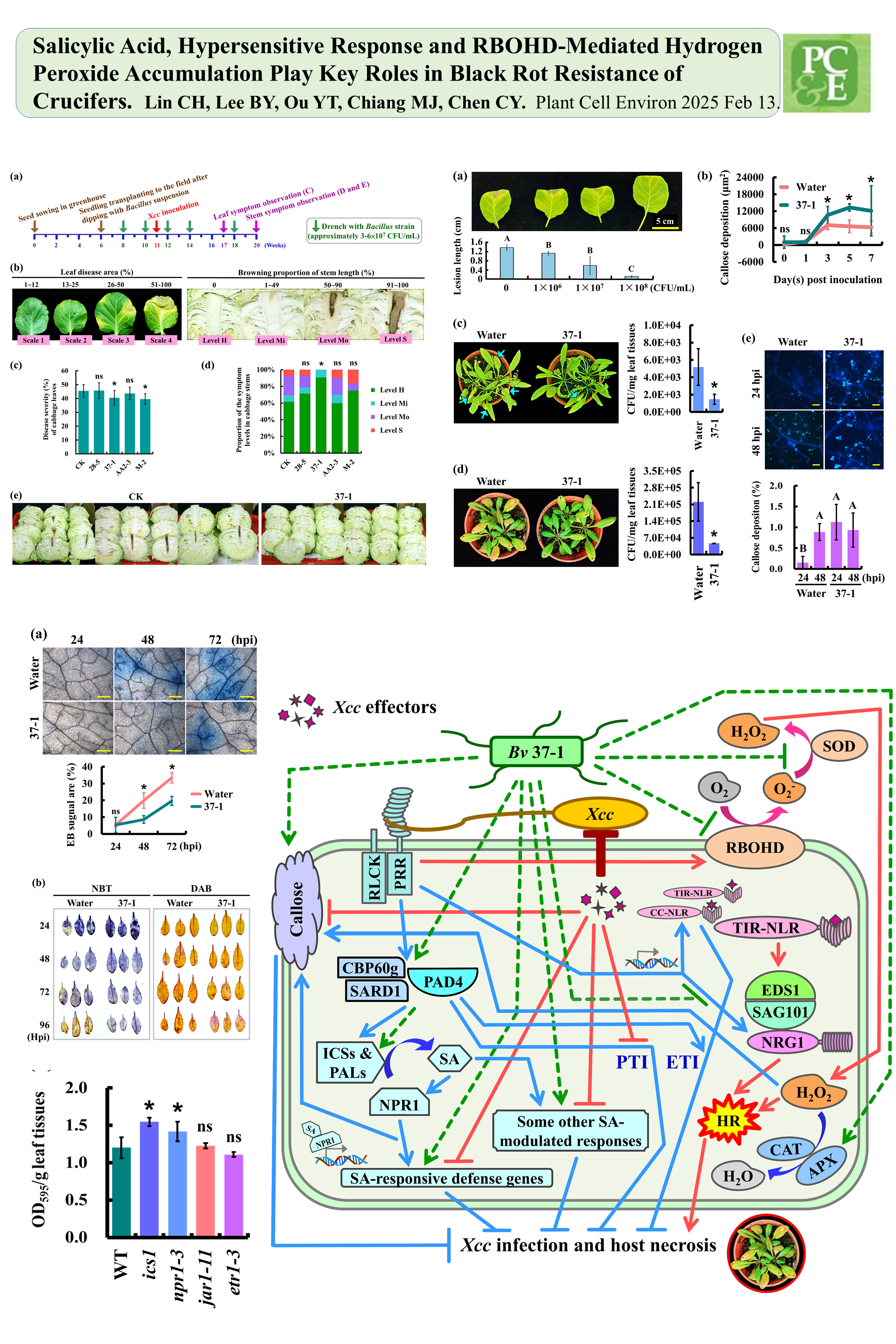Professor Chao-Ying Chen research group uncovers the key host responses for crucifer black rot resistance. Crucifer black rot, caused by Xanthomonas campestris pv. campestris (Xcc), is a significant disease globally that persistently damages cruciferous crop production. The rhizosphere bacterium Bacillus velezensis strain 37-1, screened through field trial, systemically enhances the resistance of cabbage and Arabidopsis against Xcc infection and regulate particular host responses.
By using Arabidopsis mutants, the host responses as the major determinants of black rot resistance are revealed. Xcc induces hypersensitive response (HR), a pathogen effector-triggered plant programmed cell death, to promote necrotrophic infection and black rot symptom development. RBOHD enzyme-dependent enormous accumulation of hydrogen peroxide triggered by host perception of Xcc facilitates HR induction, thereby aggravating symptom development. Salicylic acid (SA) biosynthesis as well as its downstream defense pathways and responses play significant roles in inhibiting Xcc infection. Besides, SA biosynthesis for inhibiting Xcc infection relies on both isochorismate synthase and phenylalanine ammonia-lyase pathways, although the latter is generally considered not for pathogen response.
These findings deepen our understanding of Xcc-host interaction and offer valuable insights for developing black rot control strategies and agents.

Reference link: